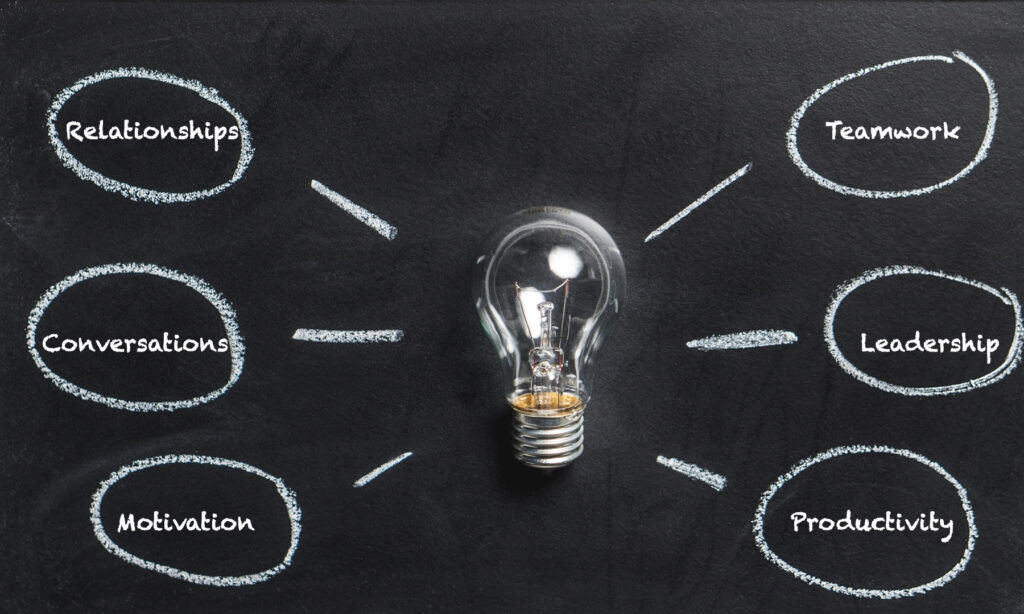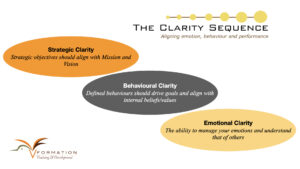
Blog
Emotion vs Logic: The Role of Emotional Intelligence in Performance Management
By Tony Ragoonanan
Can toxic environments yield positive outcomes? To some extent, yes, and I’ve personally witnessed this in one of the companies I worked for. How did they achieve results? Well, they were fortunate to possess a great product, and there are instances where a superior product can mitigate the impact of a toxic environment, at least in terms of financial gains. However, this comes with a price. The company will not be maximizing potential and will not be creating the type of culture that employees respect, leading to threats to employee commitment and the sustainability of results.
At times, getting results may also cause tendencies within corporate environments to take certain things for granted. Things that seem so easy are often ignored either due to a lack of awareness of their importance, pride, or people simply not willing to take the time to do it. While I agree that we all have to focus on getting things done, we need to have a relationship focus as well. Successful leaders aren’t measured by what they’re able to produce on their own. Instead, they are evaluated on their ability to evoke a positive environment and achieve greater success as a team and one of the worst parts about a leader lacking emotional intelligence is the fact that their behavioural pattern doesn’t allow them to see past their own biases and beliefs. This can, undoubtedly, create challenges in the work environment.
 Emotional intelligence (EI), therefore, has a major role to play and takes a “Big Picture” view of what we need to do and to be. Emotional intelligence is the ability to understand, use, and manage your own emotions in positive ways to relieve stress, communicate effectively, empathize with others, overcome challenges, and defuse conflict. It consists of Self Awareness, Self Regulation, Motivation, Empathy, and Social Skills.
Emotional intelligence (EI), therefore, has a major role to play and takes a “Big Picture” view of what we need to do and to be. Emotional intelligence is the ability to understand, use, and manage your own emotions in positive ways to relieve stress, communicate effectively, empathize with others, overcome challenges, and defuse conflict. It consists of Self Awareness, Self Regulation, Motivation, Empathy, and Social Skills.
As an example, remember that even though there may be many drivers on the road who all have a tremendous amount of knowledge and skill, this doesn’t always translate into the right behaviours. Behaviours have a tremendous impact on the health and culture of an organization and EI plays a major role in addressing these.
The Leaders Who Perform The Best Understand The Power that Emotions Can Have.
Emotional intelligence (EI) can have a significant impact on performance management as well and here are 5 key reasons why:
1. Stronger relationships: The bedrock of influencing, motivating, and inspiring others comes from an understanding of people. According to Roberto Cialdini, one of the laws of influence is “liking” and with this in place, EI can help managers to build stronger relationships with their employees, which can lead to higher levels of commitment.
2. More effective feedback and coaching: Managers with high EI and who have healthy relationships can provide more effective feedback and coaching to their employees simply because of a higher leve l of trust that will exist within those relationships. This can lead to improved performance and higher levels of engagement.
l of trust that will exist within those relationships. This can lead to improved performance and higher levels of engagement.
3. Improved conflict resolution: High EI can also improve the ability to resolve conflicts resolution skills, partly because of higher levels of empathy and overall communication, which is essential for effective performance management. Individuals with high EI take the time to recognize their own emotions and those of others and can adapt to the communication styles of others in a way that is clear, empathetic, and respectful.
4. Better collaboration and teamwork: Teams with high levels of EI are often more effective at collaborating and working towards shared goals. Members of the team are better able to communicate with one another, resolve conflicts, and work together to overcome challenges.
5. Increased motivation and engagement: By understanding how others are motivated, leaders can adjust their approach to increase commitment. When employees feel understood and valued, they are more likely to be motivated and engaged in their work because they feel that they are a part of things.
With performance management, there is one word that stands out for me and that word is CLARITY. This comes in the form of strategic clarity, emotional clarity, and behavioural clarity.  We all need to be clear on what we need to achieve and how we need to be in order to achieve the objectives. Overall, incorporating EI into performance management frameworks can help to create a more positive and productive work environment, leading to not only improved performance but better business outcomes.
We all need to be clear on what we need to achieve and how we need to be in order to achieve the objectives. Overall, incorporating EI into performance management frameworks can help to create a more positive and productive work environment, leading to not only improved performance but better business outcomes.
Schedule a call to discover more about how THE CLARITY SEQUENCE can benefit you and your organization.
 Tony Ragoonanan is the Founder of V-Formation Training & Development. As a Trainer and Performance Management Specialist, he helps individuals, teams, and businesses to align behaviours and goals, create the right organizational culture and maximize capability. Outside of this, it’s all about family, football, and fitness!!
Tony Ragoonanan is the Founder of V-Formation Training & Development. As a Trainer and Performance Management Specialist, he helps individuals, teams, and businesses to align behaviours and goals, create the right organizational culture and maximize capability. Outside of this, it’s all about family, football, and fitness!!
868-681-3492 | tonyr0909@gmail.com




Leave a reply